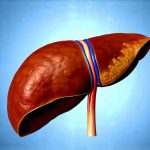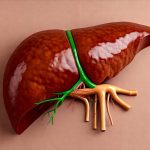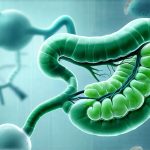The liver is arguably one of the most vital organs in the human body, performing over 500 essential functions. Often underestimated until problems arise, this incredible organ acts as our primary detoxification center, processing everything we ingest – from food and medications to alcohol and environmental toxins. It’s responsible for metabolizing nutrients, producing bile (essential for digestion), storing glycogen for energy, regulating blood clotting, and so much more. A healthy liver is therefore fundamental to overall well-being; however, modern lifestyles often place a significant burden on this workhorse organ, making it increasingly susceptible to damage and disease. Understanding how our dietary choices impact liver health is the first step towards proactive care.
Maintaining optimal liver function isn’t about drastic changes or restrictive diets – it’s about informed choices that support its natural processes. It’s about recognizing the powerful connection between what we eat and how well our bodies, especially this key organ, can thrive. A diet rich in nutrients, combined with mindful habits regarding alcohol consumption and avoidance of excessive processed foods, can significantly reduce the risk of liver disease and promote long-term health. This article explores practical dietary tips that empower you to nourish your liver and safeguard its crucial functions for years to come.
Dietary Foundations for Liver Health
A cornerstone of liver health lies in adopting a whole food based diet. This means prioritizing unprocessed foods like fruits, vegetables, whole grains, lean proteins, and healthy fats. These foods provide essential vitamins, minerals, antioxidants, and fiber that support the liver’s detoxification processes and overall function. Conversely, minimizing processed foods – those high in sugar, unhealthy fats, and artificial additives – is crucial as they place a significant strain on the organ. Think of it this way: you’re providing your liver with the building blocks it needs to work effectively when you nourish it with wholesome foods, while simultaneously reducing its workload by limiting harmful substances.
The types of fats we consume also play a critical role. While completely eliminating fat isn’t advisable (nor healthy!), focusing on healthy fats is paramount. These include monounsaturated and polyunsaturated fats found in avocados, olive oil, nuts, seeds, and fatty fish like salmon. These fats support liver cell health and reduce inflammation. Conversely, excessive saturated and trans fats – prevalent in fried foods, processed snacks, and some animal products – can contribute to non-alcoholic fatty liver disease (NAFLD), a growing global concern.
Hydration is another fundamental aspect of liver health often overlooked. Water is essential for all bodily functions, including the liver’s detoxification processes. Aim for at least 8 glasses of water daily, adjusting based on activity level and climate. Adequate hydration helps flush out toxins, supports bile production, and prevents constipation, which can indirectly impact liver function. Consider incorporating herbal teas – dandelion root tea, for example – known to support liver health, but always consult with a healthcare professional before adding supplements or specific teas to your routine.
Powerhouse Foods for Liver Support
Certain foods stand out as particularly beneficial for liver health due to their unique nutrient profiles and properties. Cruciferous vegetables like broccoli, cauliflower, Brussels sprouts, and kale are rich in compounds that support detoxification pathways. These vegetables contain glucosinolates, which the body converts into substances that help neutralize toxins. Incorporating a variety of colorful fruits and vegetables ensures you’re receiving a broad spectrum of antioxidants to combat oxidative stress – a major contributor to liver damage.
- Berries: Packed with antioxidants like anthocyanins.
- Citrus Fruits: Rich in Vitamin C, another powerful antioxidant.
- Beets: Contain betaine, which supports bile flow and detoxification.
- Garlic & Onions: Contain sulfur compounds that aid in detoxification.
Beyond vegetables and fruits, incorporating healthy protein sources is essential. Lean proteins like fish, poultry, beans, and lentils provide the amino acids necessary for liver cell repair and regeneration. However, avoid excessive red meat consumption, as it can contribute to inflammation and put additional strain on the liver. Finally, don’t underestimate the power of spices! Turmeric, with its active compound curcumin, possesses potent anti-inflammatory and antioxidant properties that are incredibly beneficial for liver health.
Limiting Liver Stressors Through Diet
While focusing on what to eat is important, equally crucial is understanding what to limit or avoid. Excessive sugar intake, particularly fructose found in sugary drinks and processed foods, is a major contributor to NAFLD. The liver processes fructose differently than glucose, leading to fat accumulation if consumed in excess. Similarly, excessive alcohol consumption places a significant burden on the liver, potentially leading to alcoholic fatty liver disease and cirrhosis. Moderate or eliminating alcohol is often recommended for those concerned about their liver health.
Processed foods are also major culprits when it comes to stressing the liver. These foods are often laden with unhealthy fats, sugar, salt, and artificial additives that require extensive processing by the liver. This constant workload can overwhelm its capacity, leading to inflammation and damage. Consider reading food labels carefully and opting for whole, unprocessed alternatives whenever possible.
- Prioritize organic options when available to minimize exposure to pesticides and herbicides.
- Be mindful of portion sizes to avoid overeating and placing undue stress on the liver.
- Avoid foods high in sodium, as excess sodium can contribute to fluid retention and strain the liver.
The Role of Fiber & Gut Health
The relationship between gut health and liver health is increasingly recognized. A healthy gut microbiome – the community of microorganisms living in our digestive tract – plays a vital role in regulating inflammation, supporting detoxification, and even influencing liver function. Dietary fiber is essential for maintaining a thriving gut microbiome. It acts as food for beneficial bacteria, promoting their growth and diversity.
Foods rich in fiber include whole grains, fruits, vegetables, legumes, and nuts. Aim for at least 25-30 grams of fiber per day to support optimal gut health. A healthy gut reduces the amount of toxins that reach the liver, lessening its workload and improving its overall function. Conversely, a diet low in fiber can lead to dysbiosis – an imbalance in gut bacteria – which can contribute to inflammation and increased toxin absorption.
Furthermore, consider incorporating probiotic-rich foods like yogurt (with live cultures), kefir, sauerkraut, and kimchi into your diet. Probiotics introduce beneficial bacteria to the gut, further enhancing microbiome diversity and supporting overall health. Remember that a healthy gut is not just about what you eat; it’s also about minimizing factors that disrupt its balance, such as excessive antibiotic use and stress.
This article provides a starting point for understanding how dietary choices can significantly impact liver health. It’s important to remember that individual needs may vary, and consulting with a healthcare professional or registered dietitian is always recommended before making significant changes to your diet or lifestyle. A proactive approach to nutrition is an investment in your long-term well-being, ensuring that this vital organ continues to function optimally for years to come.


















